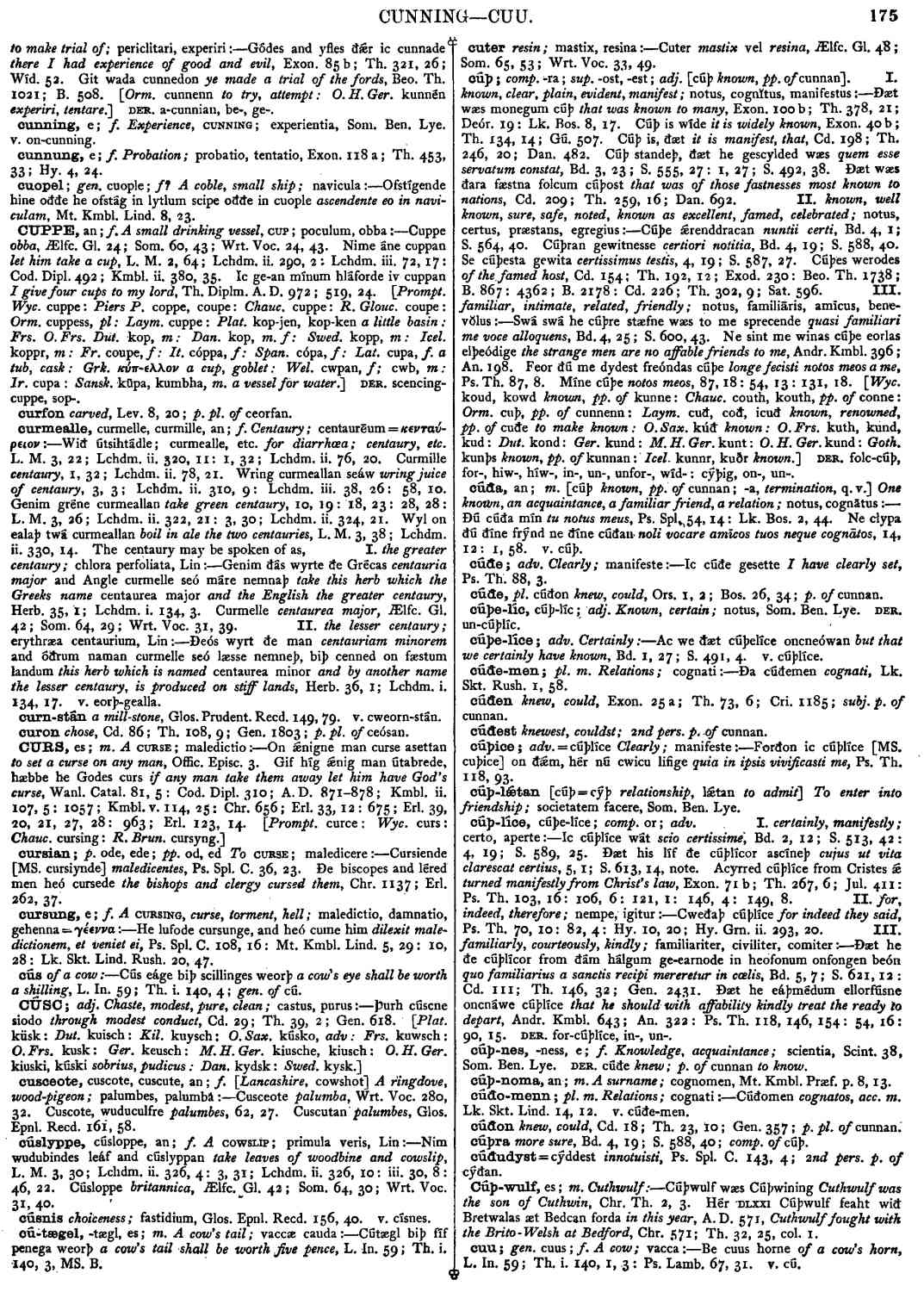cúþ
- adjective
- participle
-
Ðæt wæs monegum cúþ
that was known to many,
- Exon. 100b ;
- Th. 378, 21 ;
- Deór. 19: Lk. Bos. 8, 17.
-
Cúþ is wíde
it is widely known,
- Exon. 40b ;
- Th. 134, 14 ;
- Gú. 507 .
-
Cúþ is, ðæt
it is manifest, that,
- Cd. 198 ;
- Th. 246, 20 ;
- Dan. 482 .
-
Cúþ standeþ, ðæt he gescylded wæs
quem essu servatum constat,
- Bd. 3, 23 ;
- S. 555, 27: 1, 27 ;
- S. 492, 38 .
-
Ðæt wæs ðara fæstna folcum cúþost
that was of those fastnesses most known to nations,
- Cd. 209 ;
- Th. 259, 16 ;
- Dan. 692 .
-
Cúþe ǽrenddracan
nuntii certi,
- Bd. 4, 1 ;
- S. 564, 40.
-
Cúþran gewitnesse
certiori notitia,
- Bd. 4, 19 ;
- S. 588, 40.
-
Se cúþesta gewita
certissimus testis,
- 4, 19 ;
- S. 587, 27.
-
Cúþes werodes
of the famed host,
- Cd. 154; Th. 192, 12;
- Exod. 230: Beo. Th. 1738 ;
- B. 867: 4362 ;
- B. 2178: Cd. 226 ;
- Th. 302, 9 ;
- Sat. 596 .
-
Swá swá he cúþre stæfne wæs to me sprecende
quasi familiari me voce alloquens,
- B
- d. 4, 25 ;
- S. 600, 43 .
-
Ne sint me winas cúþe eorlas elþeódige
the strange men are no affable friends to me,
- Andr. Kmbl. 396 ;
- An. 198 .
-
Feor ðú me dydest freóndas cúþe
longe fecisti notos meos a me,
- Ps. Th. 87, 8 .
-
Míne cúþe
notos meos,
- 87, 18: 54, 13: 131, 18.
Bosworth, Joseph. “cúþ.” In An Anglo-Saxon Dictionary Online, edited by Thomas Northcote Toller, Christ Sean, and Ondřej Tichy. Prague: Faculty of Arts, Charles University, 2014. https://bosworthtoller.com/6861.
Checked: 1